Bonobo
- 200 páginas
- 7 horas de lectura
Primatologist Frans de Waal and wildlife photographer Frans Lanting present the most up-to-date perspective available on the bonobo, the least known of the great apes. 75 color plates.
Frans de Waal es un influyente autor y primatólogo cuyo trabajo profundiza en el complejo mundo de la inteligencia y el comportamiento animal. A través de una investigación meticulosa y una escritura accesible, revela las profundas capacidades cognitivas y las estructuras sociales de nuestros parientes animales. Sus escritos desafían las nociones convencionales de la singularidad humana, instando a los lectores a reconsiderar su relación con el reino animal. De Waal ofrece una perspectiva convincente sobre lo que significa ser inteligente y consciente en un sentido más amplio, destacando la continuidad entre las especies.

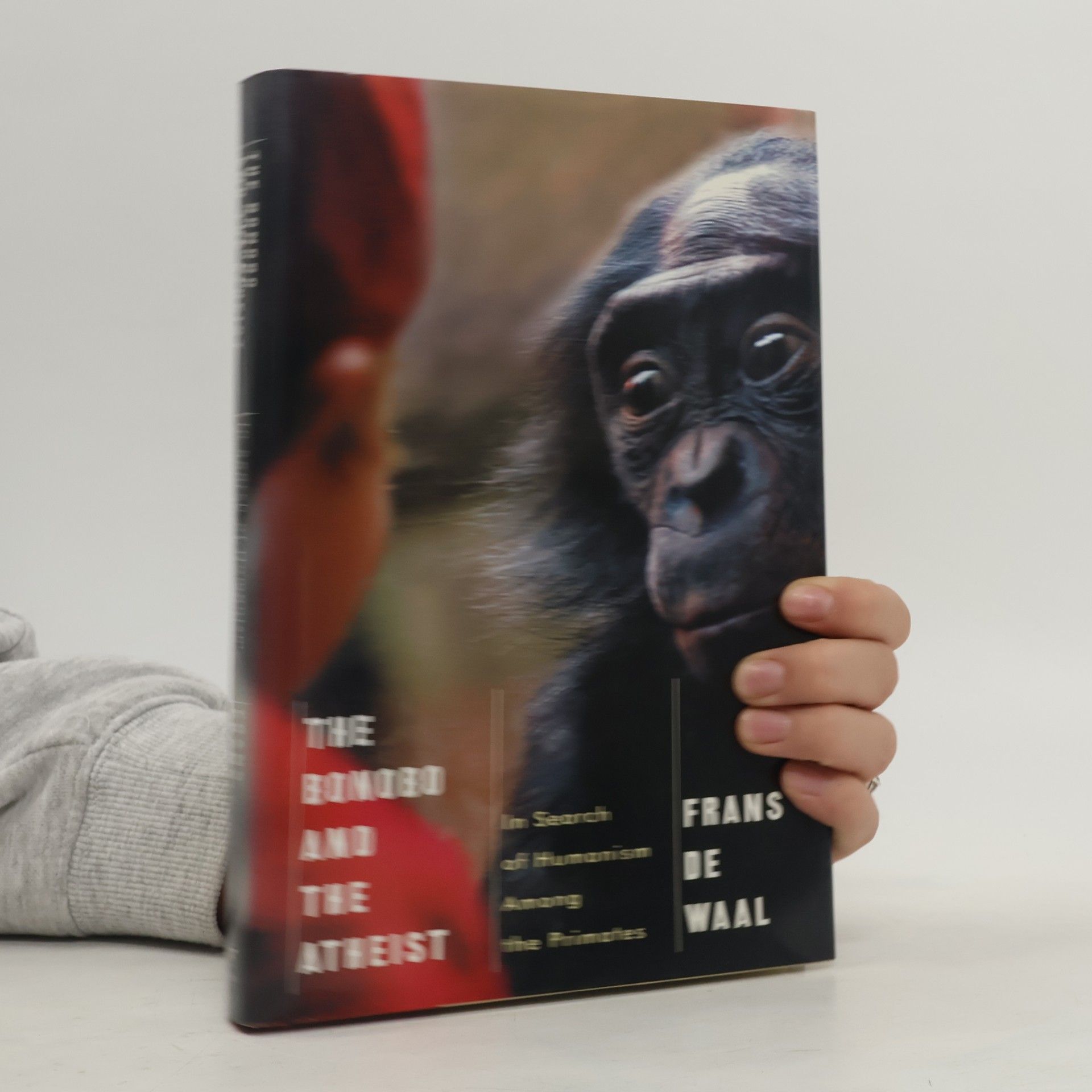
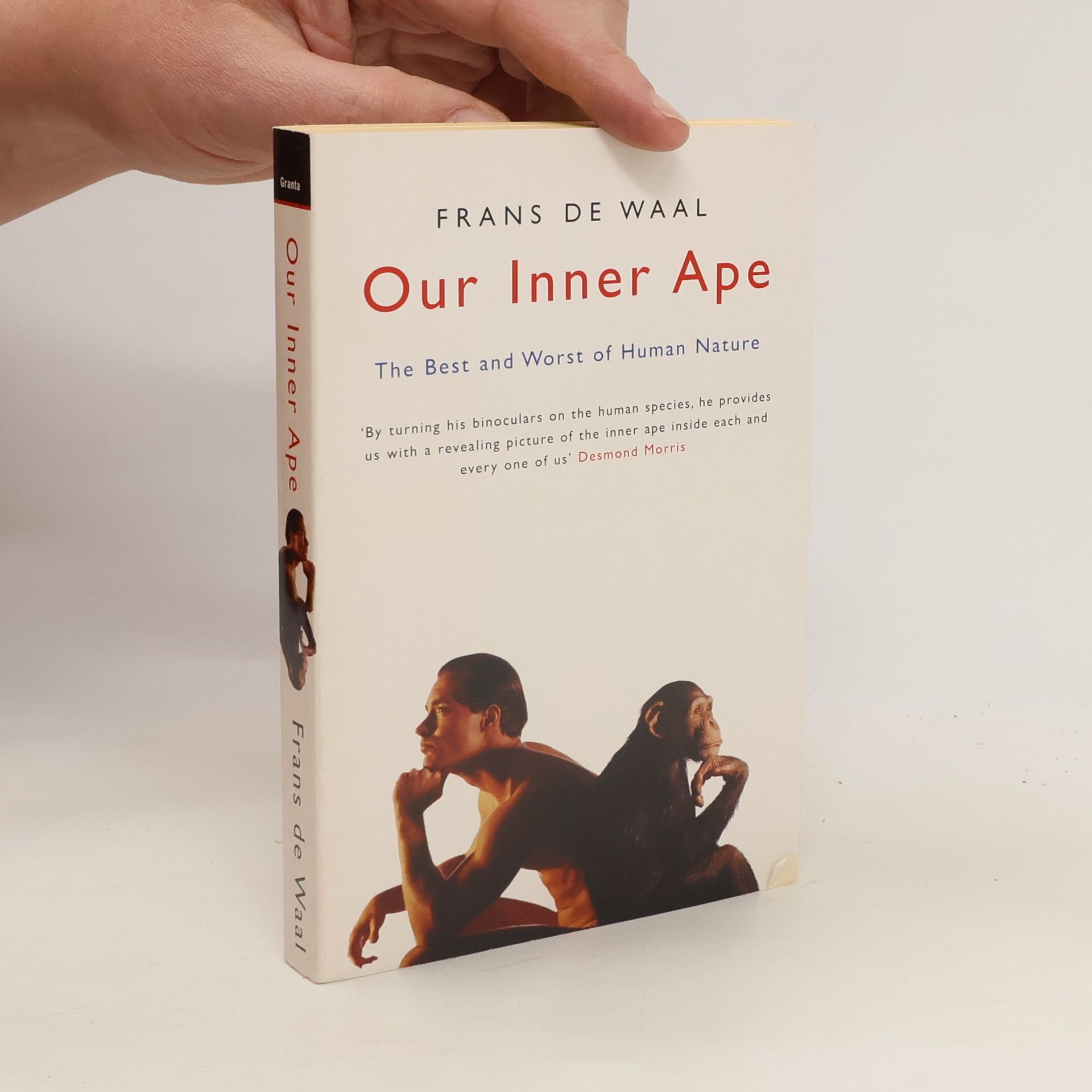
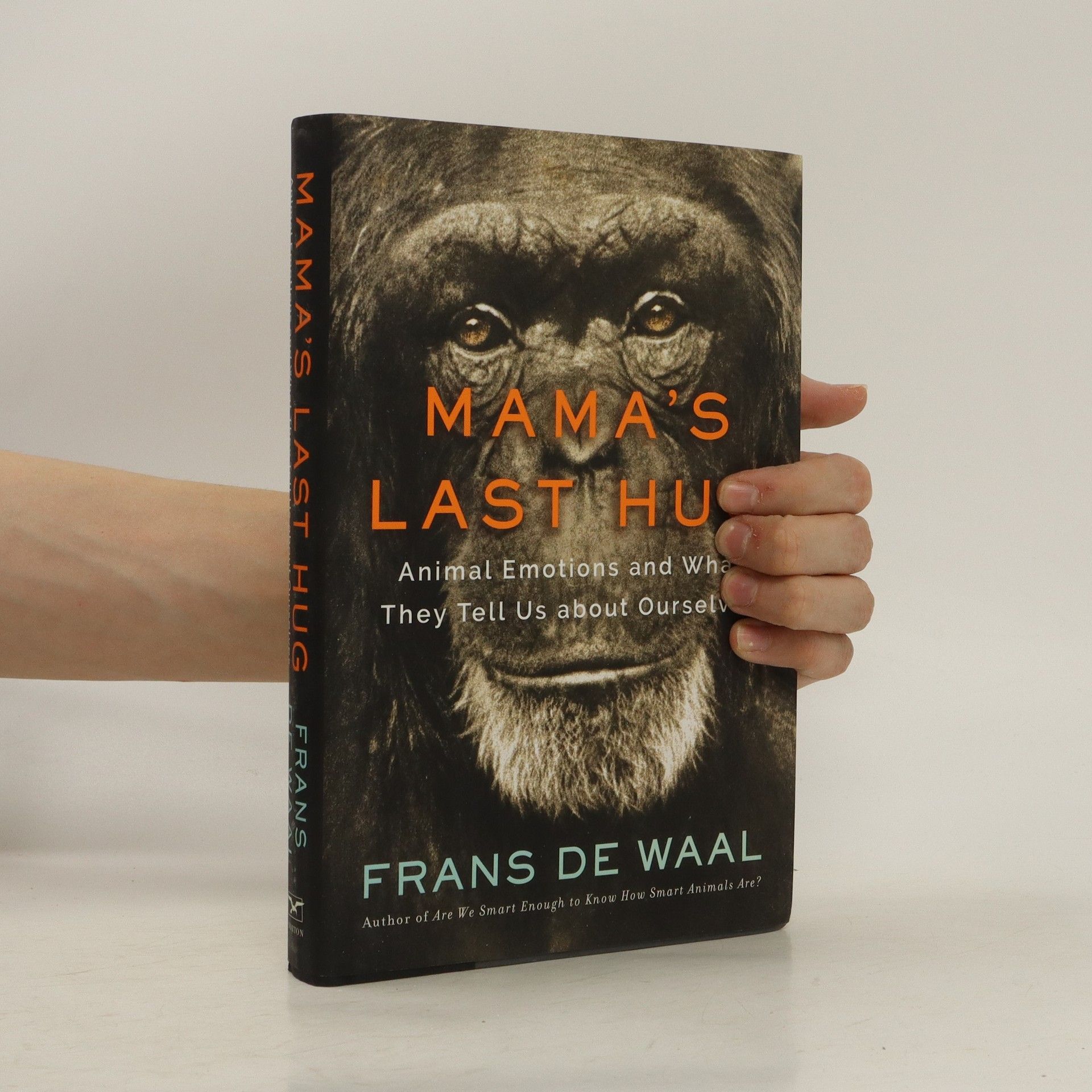

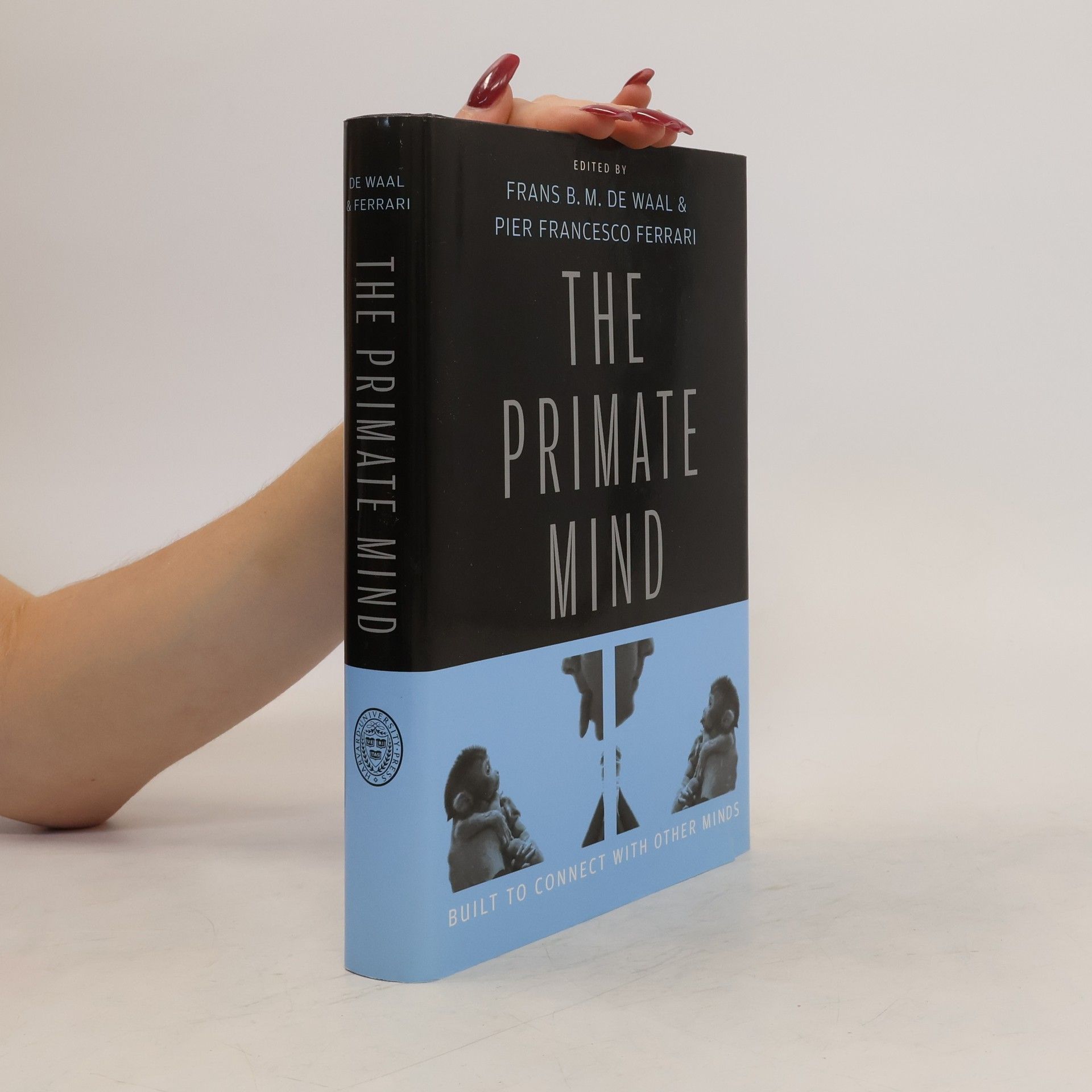
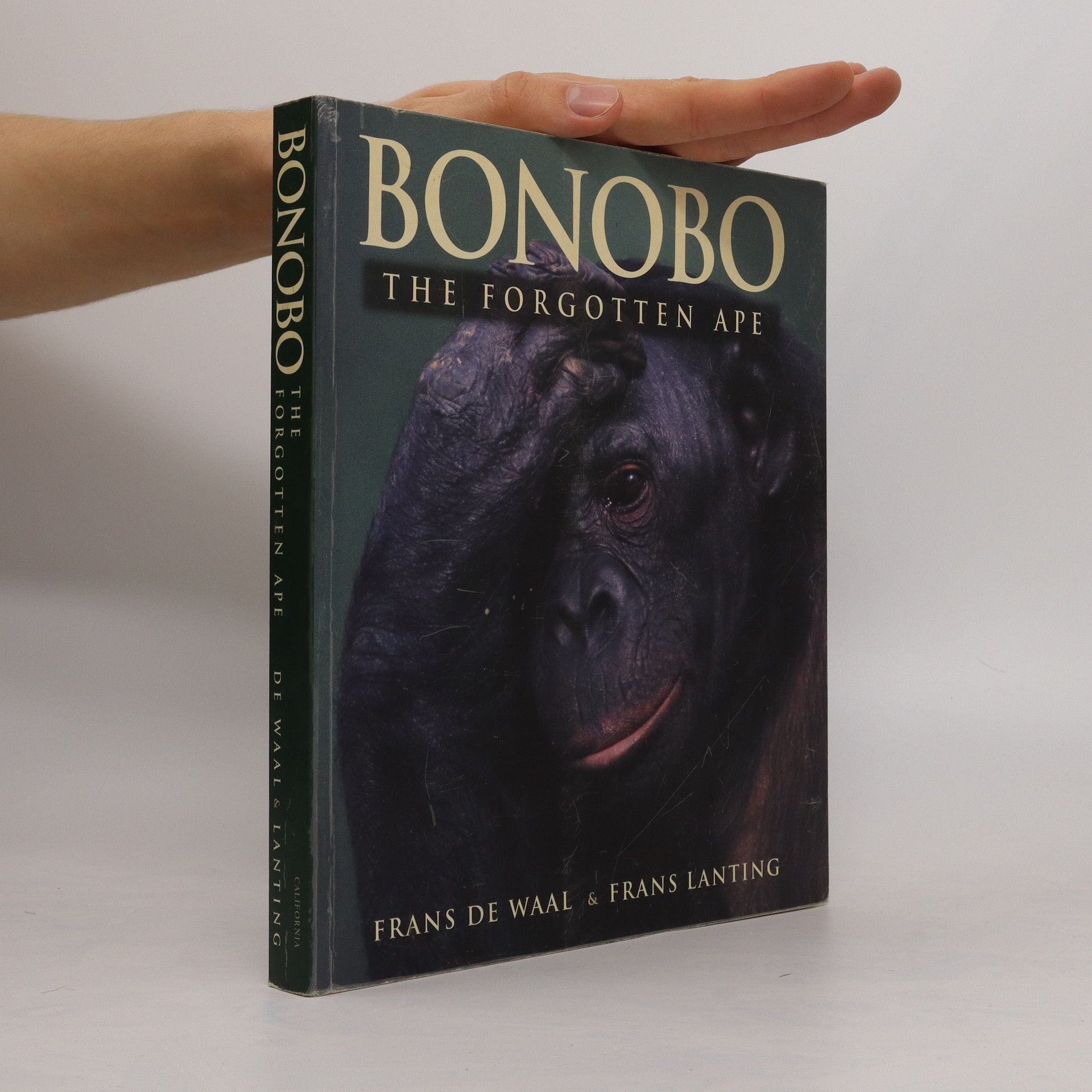
Primatologist Frans de Waal and wildlife photographer Frans Lanting present the most up-to-date perspective available on the bonobo, the least known of the great apes. 75 color plates.
Built to Connect with Other Minds
"Can virtuous behavior be explained by nature, and not by human rational choice? In Primates and philosophers, renowned primatologist Frans de Waal explores the biological foundations of one of humanity's most cherished traits: morality. Drawing on Darwin, recent scientific advances, and his extensive research of primate behavior, de Waal argues that modern-day evolutionary biology incorrectly reinforces our habit of labeling ethical behavior as humane and the less civilized as animalistic. His compelling account of how human morality evolved out of mammalian society will fascinate anyone who has ever wondered about the origins and reach of human goodness."--Page 4 of cover
A whirlwind tour of new ideas and findings about animal emotions, based on de Waal's studies of the social and emotional lives of chimpanzees, bonobos, and other primates. De Waal discusses facial expressions, animal sentience and consciousness, Mama's life and death, the emotional side of human politics, and the illusion of free will. He distinguishes between emotions and feelings, all the while emphasizing the continuity between our species and other species. And he makes the radical proposal that emotions are like organs: we don't have a single organ that other animals don't have, and the same is true for our emotions -- Adapted from publisher's description
We have long attributed man's violent, aggressive, competitive nature to his animal ancestry. But what if we are just as given to cooperation, empathy, and morality by virtue of our genes? From a scientist and writer whom E.O. Wilson has called 'the world authority on primate social behavior' comes a lively look at the most provocative aspects of human nature - power, sex, violence, kindness, and morality - through our two closest cousins in the ape family. For nearly 20 years, Frans de Waal has worked with both the famously aggressive chimpanzee and the lesser-known egalitarian, erotic, matriarchal bonobo, two species whose DNA is nearly identical to that of humans. He brings these apes to life on every page, revealing their personalities, relationships, and power struggles, creating an engrossing narrative that explores what their behaviour can teach us about ourselves and each other.
In this lively and illuminating discussion of his landmark research, esteemed primatologist Frans de Waal argues that human morality is not imposed from above but instead comes from within. Moral behavior does not begin and end with religion but is in fact a product of evolution.
Marc Levy recupera la magia de sus primeros libros con una novela original, divertida y sorprendente sobre la vida de un hombre que tiene un don muy especial. A través de sus sueños de niño, sus heridas, sus encuentros y sus decisiones iremos descubriendo que lo que una vez soñamos no nos abandona jamás. Una novela para volver a despertar nuestra infancia y nuestra imaginación, para los adultos que siguen siendo un poco niños, y para todos los demás. Un primer amor para toda la vida. ¿Dónde te espera la felicidad? Una novela que nos invita a vivir nuestros sueños en lugar de soñar nuestra vida.
From the New York Times bestselling author of Mama's Last Hug and Are We Smart Enough to Know How Smart Animals Are?, a provocative argument that apes have created their own distinctive cultures In The Ape and the Sushi Master, eminent primatologist Frans de Waal corrects our arrogant assumption that humans are the only creatures to have made the leap from the natural to the cultural domain. The book's title derives from an analogy de Waal draws between the way behavior is transmitted in ape society and the way sushi-making skills are passed down from sushi master to apprentice. Like the apprentice, young apes watch their group mates at close range, absorbing the methods and lessons of each of their elders' actions. Responses long thought to be instinctive are actually learned behavior, de Waal argues, and constitute ape culture. A delightful mix of intriguing anecdote, rigorous clinical study, adventurous field work, and fascinating speculation, The Ape and the Sushi Master shows that apes are not human caricatures but members of our extended family with their own resourcefulness and dignity.
'Kindness and co-operation have played a crucial role in raising humans to the top of the evolutionary tree ... We have thrived on the milk of human kindness.' ObserverBY THE AUTHOR OF ARE WE SMART ENOUGH TO KNOW HOW SMART ANIMALS ARE?'There is a widely-held assumption that humans are hard-wired for relentless and ruthless competition ... Frans de Waal sees nature differently - as a biological legacy in which empathy, not mere self-interest, is shared by humans, bonobos and animals.' Ben Macintyre, The TimesEmpathy holds us together. That we are hardwired to be altruistic is the result of thousands of years of evolutionary biology which has kept society from slipping into anarchy. But we are not alone: primates, elephants, even rodents are empathetic creatures too.Social behaviours such as the herding instinct, bonding rituals, expressions of consolation and even conflict resolution demonstrate that animals are designed to feel for each other. From chimpanzees caring for mates that have been wounded by leopards, elephants reassuring youngsters in distress and dolphins preventing sick companions from drowning, with a wealth of anecdotes, scientific observations, wry humour and incisive intelligence, The Age of Empathy is essential reading for all who believe in the power of our connections to each other.
What separates your mind from that of an animal? Is it the ability to design tools; a sense of self; or the grasp of past and future? In recent decades these claims have eroded, or even been disproven outright, by a revolution in the study of animal cognition. Waal explores both the scope and the depth of animal intelligence, offering a firsthand account of how science has stood traditional behaviorism on its head by revealing how smart animals really are, and how we've underestimated their abilities for too long.